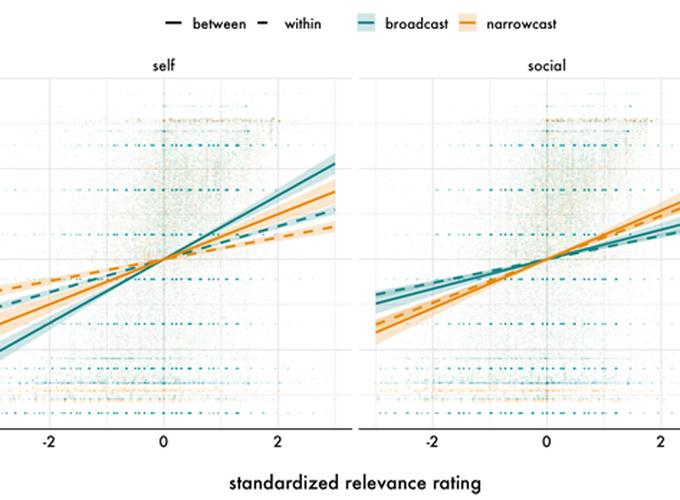Message self and social relevance increases intentions to share content: Correlational and causal evidence from six studies
Abstract
Information sharing within social networks can catalyze widespread attitudinal and behavioral change and the chance to share information with others has been characterized as inherently valuable to people. But what are the sources of value and how might they be leveraged to promote sharing? We test ideas from the value-based virality model that the value of sharing increases when people perceive messages as more relevant to themselves and to people they know, resulting in stronger intentions to share. We extend this work by considering how sharing context—broadcasting to a wide audience or narrowcasting directly to someone—may alter these relationships. Six online studies with adults in the United States (N participants=3,727; messages=362; message ratings=30,954) showed robust evidence that self and social relevance are positively and uniquely related to sharing intentions within- and between-person. Specification curve analysis showed these relationships were consistent across message content (COVID-19, voting, general health, climate change), medium (social media post and news articles), and sharing context (broad- and narrowcasting). A preregistered experiment showed that manipulating the self and social relevance of messages through a framing manipulation causally increased sharing intentions. These causal effects were mediated by changes in both self and social relevance, but the relative strength of the causal pathways differed depending on sharing context. These findings extend existing models of information sharing, and highlight self and social relevance as psychological mechanisms that motivate information sharing that can be targeted to promote sharing across contexts.
